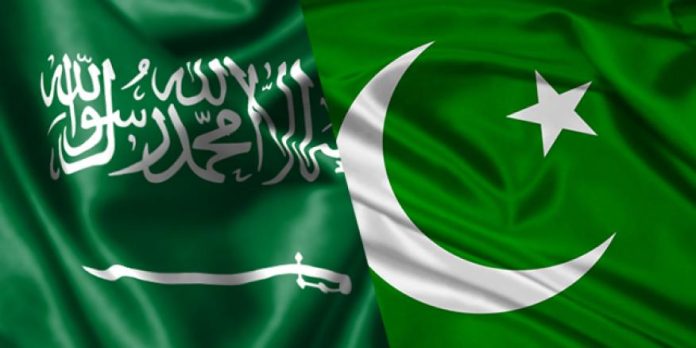Federal Cabinet Approves Accord To Keep Saudi Assistance Of $3 Billion With State Bank Of Pakistan
Saudi assistance will remain in SBP account as deposit for a year and Pakistan will pay four percent markup on it

ISLAMABAD ( JAVED MAHMOOD )
The federal cabinet today approved an agreement to keep $3 billion assistance from Saudi Arabia in the State Bank of Pakistan. The Cabinet approved the agreement via a circulation summary on Saturday (Nov 27).
Saudi Arabia has had promised to maintain a reserve of $3 billion with the State Bank of Pakistan which will remain in the State Bank’s deposit account for a year.
Pakistan would have to pay 4 percent mark up on Saudi deposits. The proposed agreement with the Saudi government was forwarded to the Ministry of Law and the Office of the Attorney General.
The Attorney General’s Office and the Ministry of Law reached an agreement on a draft. Following the legal opinion, a copy of the agreement was submitted for approval to the federal cabinet.

The cabinet approved the State Bank’s retention of $3 billion from the Saudi Development Fund.
Pakistan’s entire liquid foreign reserves, according to the central bank, stood at $22.773 billion on November 19, 2021.
The numbers indicate that the SBP held $16.254 billion in foreign reserves, while commercial banks kept $6.519 billion in net foreign reserves.
The SBP’s reserves declined by $691 million to $16.254 billion during the week ended November 19, 2021, primarily owing to external debt repayments.
According to official sources, Saudi Arabia has agreed to provide $1.2 billion for the supply of refined POL products, with the Economic Affairs Division (EAD) negotiating on behalf of the Pakistani government.
Muzammil Aslam, spokesperson for Adviser to the Prime Minister on Finance, said Pakistan would receive $7 billion from just three different sources within two months.
These include $3 billion in deposits from Saudi Arabia, a $1.2 billion Saudi Oil Facility with deferred payments, an $800 million Islamic Development Bank oil facility, $1 billion raised through the issuance of Sukuk bonds, and $1 billion from the IMF.
All of these dollar inflows, he argued, would be sufficient to alleviate pressure on existing import bills

